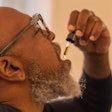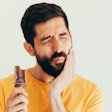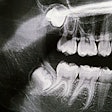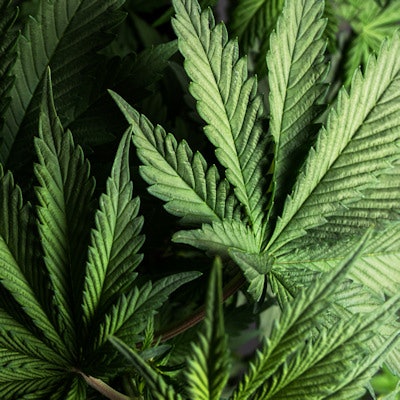
Do you discuss cannabis use with your patients? Researchers from the University of California, San Francisco (UCSF) hope the answer is yes. They outlined the oral health considerations of marijuana and other noncigarette products in a recent study.
"Any product that involves breathing in smoke, including cannabis, is likely to exacerbate periodontal disease and impair wound healing," lead author Benjamin Chaffee, DDS, MPH, PhD, told DrBicuspid.com. "Smoked tobacco and chewing tobacco both increase the risk of oral cancer."
Dr. Chaffee and fellow researchers from the UCSF School of Dentistry asked hundreds of California dentists and hygienists about their tobacco and cannabis counseling behaviors with their patients. They published their findings in JDR Clinical & Translational Research (July 19, 2019).
The majority of dentists and hygienists said they didn't discuss electronic cigarettes (e-cigarettes), smokeless tobacco, or other types of nontobacco products. Only 25% reported talking with patients about cannabis use, significantly lower than almost any other type of product.
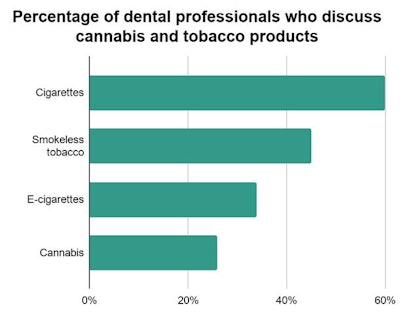
Dr. Chaffee was somewhat discouraged by the findings since dental professionals should discuss tobacco use with every patient. Tobacco products have known oral health consequences, and while less is known about e-cigarettes, he maintains they are not harm-free.
It's also important for dentists and hygienists to discuss cannabis use, Dr. Chaffee noted. Smoking marijuana, including in water pipes, is the main concern for dental professionals, but other types of cannabis may still have a detrimental effect.
 Benjamin Chaffee, DDS, MPH, PhD.
Benjamin Chaffee, DDS, MPH, PhD."As for vaping or edibles, the research is insufficient to understand possible oral health effects," he said. "That said, there may be other relevant considerations, like patients who are self-medicating with cannabis for dental anxiety, perhaps becoming too impaired to drive safely to or from dental visits."
Talking about cannabis is not something Dr. Chaffee only recommends for California dentists, either. California is often an indicator of future countrywide trends, and dentists in other states should be prepared to ask about marijuana use.
"California is somewhat unique, given the low prevalence of tobacco smoking and liberal attitudes and policies around cannabis," he said. "Historically, smoking levels and policies seen first in California have later become the norm in other states."
In fact, Dr. Chaffee believes not talking with patients about cannabis and tobacco use could be a disservice, especially because cannabis can interfere with optimal healing after an extraction, graft, or implant.
"Dental professionals are trained to be great communicators," he said. "There's no need to feel uncomfortable talking about something that is directly related to oral health."
Finally, Dr. Chaffee urged dental professions to learn more about local tobacco cessation resources and refer patients to cessation programs when necessary. In the study, only 35% of hygienists and 16% of dentists offered patients a referral -- percentages the authors deemed low.
"It is vital that dental professionals are well informed and comfortable with the available tobacco cessation resources near them so that they can connect patients with evidence-based support to quit," Dr. Chaffee said. "Compensating dental practices for time spent delivering tobacco cessation counseling would both motivate providers and signal that this service is important."










